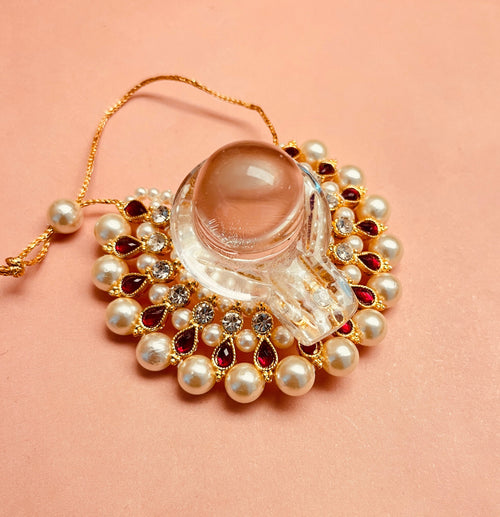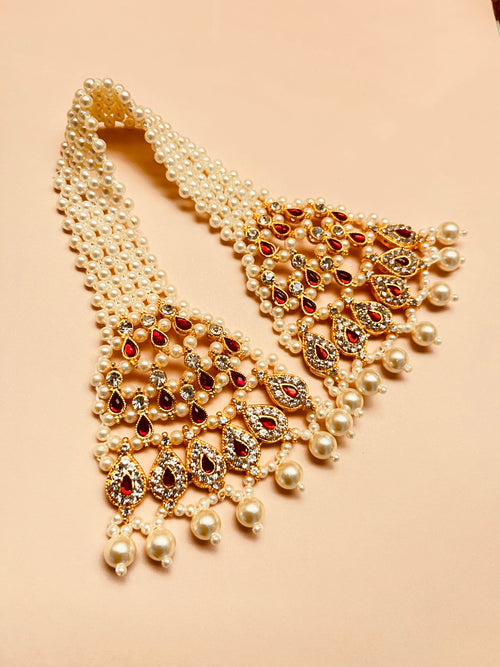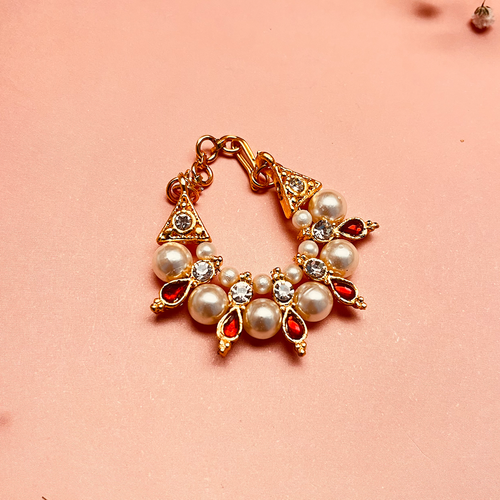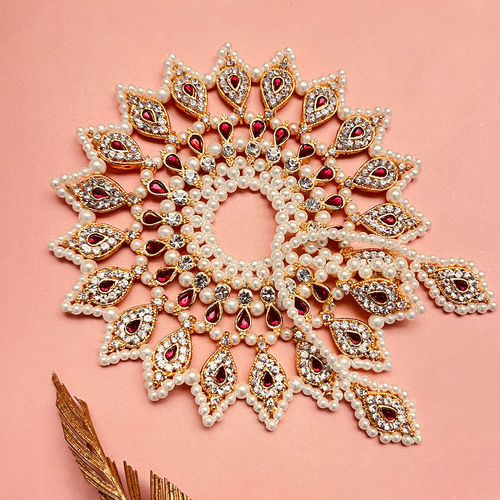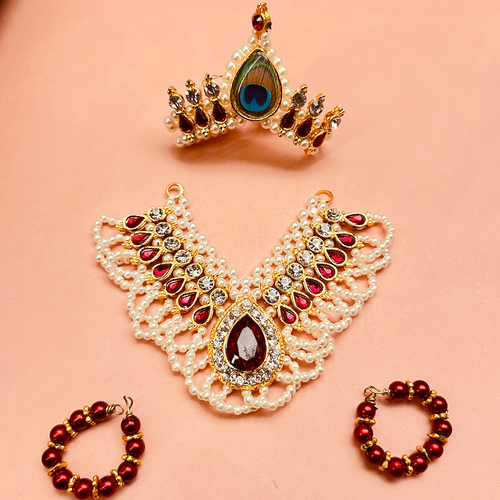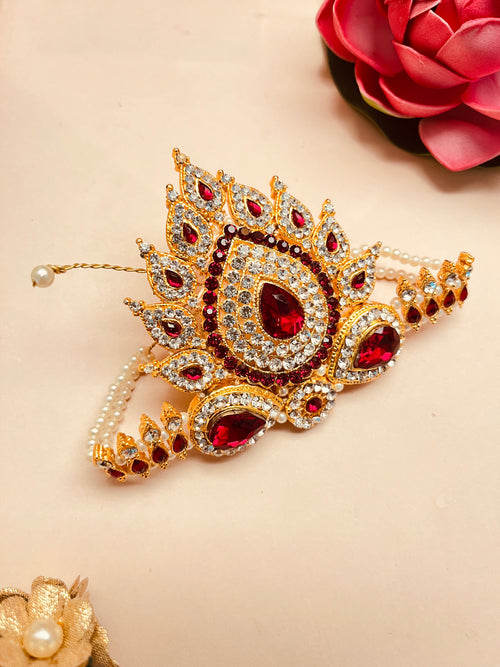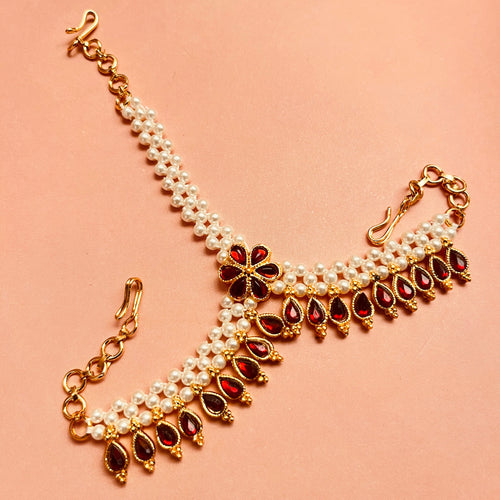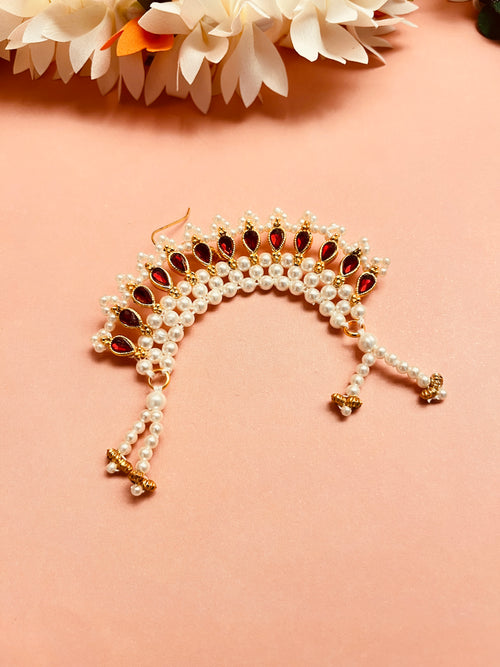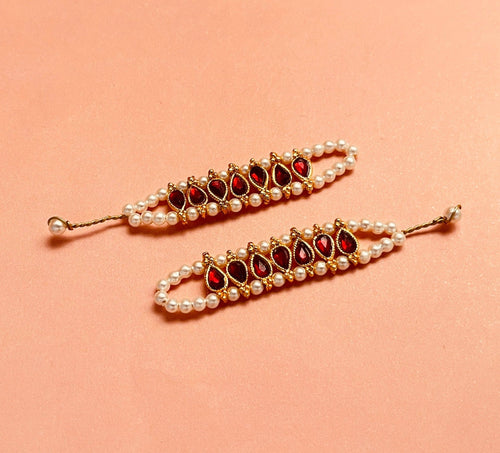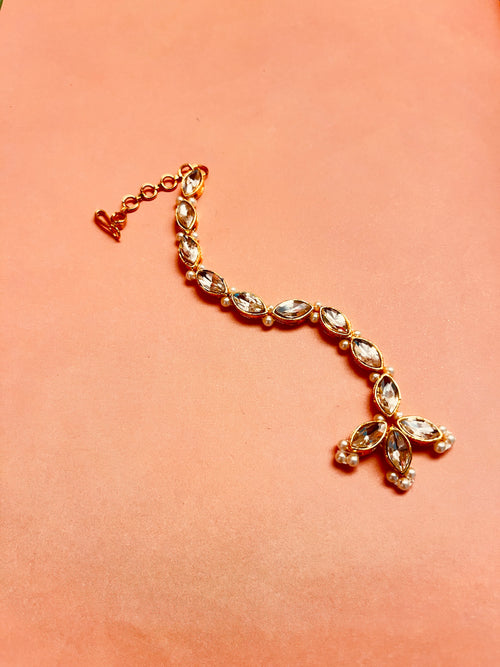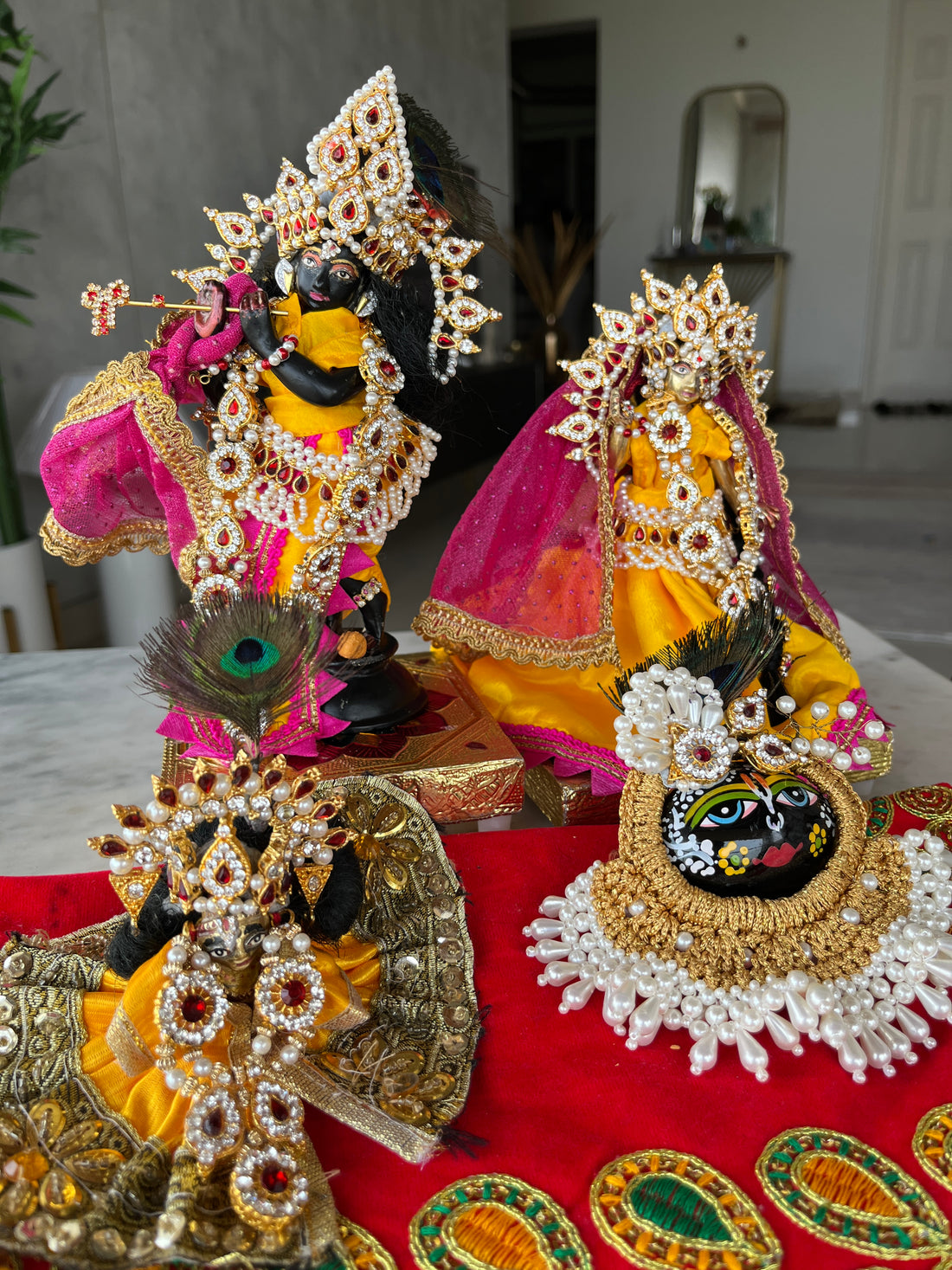
The Significance of Jewelry in Hindu Culture and Worship
Share
The Significance of Jewelry in Hindu Culture and Worship
In Hindu culture, jewelry is far more than mere adornment; it holds deep spiritual significance and is intertwined with rituals, beliefs, and divine reverence. For centuries, jewelry has played a vital role not only in human ornamentation but also in the decoration of deities, with each piece representing devotion, protection, and a connection to the divine. In Hindu worship, adorning god idols with beautiful jewelry is a way of expressing devotion and honoring the qualities that each deity embodies.
In this post, we explore the history and cultural importance of jewelry in Hindu worship and how each piece serves as a powerful symbol in establishing a sacred connection with deities.
Historical Roots of Jewelry in Hindu Worship
The tradition of using jewelry in Hindu rituals can be traced back thousands of years, to ancient texts and traditions that prescribed detailed adornments for gods and goddesses. Historical temples across India display intricately adorned idols, reflecting the belief that deities are divine forms to be revered with utmost care and respect. This reverence extended to dressing and adorning idols, as a way to demonstrate gratitude, faith, and worship.
In ancient Hindu texts such as the Vedas and the Agamas, there are numerous references to decorating deities as an essential part of ritual practices. For example, the Shilpa Shastra, a text on ancient Indian art and sculpture, lays down specific guidelines on how idols should be dressed and decorated. Each item of jewelry, from crowns to necklaces and anklets, has a specific meaning and is believed to enhance the spiritual aura of the idol.
The Spiritual Significance of Jewelry in Hindu Worship
In Hindu culture, jewelry represents divine qualities, acting as symbols that strengthen the connection between devotees and their gods. Here are a few ways in which specific jewelry pieces hold spiritual significance:
-
Crowns (Mukut): A mukut, or crown, is one of the most commonly used ornaments in Hindu worship, symbolizing the supreme authority and power of the deity. When devotees place a mukut on an idol, it represents reverence for the deity's status as a supreme protector and guide. For instance, Lord Krishna’s feathered crown represents his playful, divine love, while Goddess Lakshmi’s crown symbolizes abundance and wealth.
-
Necklaces (Haar): Necklaces symbolize love, prosperity, and commitment, and are often used to adorn idols of deities like Lakshmi, who is the goddess of wealth. In Hindu culture, each layer of necklaces on a deity represents prosperity and the divine’s infinite grace toward humanity.
-
Earrings (Kundal): Earrings on deities are not merely decorative but are believed to enhance their divine listening abilities, symbolizing that the gods are attentive to the prayers of their devotees. Lord Shiva’s earrings, for example, represent both masculine and feminine energy, reinforcing the balance within the divine.
-
Anklets (Payal): Anklets and foot adornments are often used for deities like Goddess Durga and Krishna, representing strength, protection, and movement. The sound produced by anklets is considered auspicious, believed to ward off negativity and attract positive energy to the space of worship.
-
Bangles (Kangan): Bangles symbolize continuity and protection, often seen adorning goddesses such as Saraswati and Lakshmi. In Hindu beliefs, bangles carry a protective energy, believed to absorb divine blessings that flow from the deity’s hands to the devotees.
Jewelry as a Symbol of Devotion and Offering
Offering jewelry to god idols is not just about beautification; it’s a gesture of love and respect that reflects the devotee’s desire to serve and honor the divine. Adorning a deity can be seen as a way of symbolically giving up worldly attachments and presenting them as offerings to the god. Each ornament offered becomes a part of the devotee’s spiritual practice, deepening their connection with the divine.
In Hindu poojas, the act of adorning an idol is often accompanied by mantras and prayers. This process, known as alankara, is seen as an offering of the highest respect to the god, inviting their presence and blessings. In major festivals like Janmashtami, Diwali, and Navratri, adorning idols with jewelry takes on even greater importance, symbolizing gratitude, love, and faith in the deity’s powers.
Cultural Symbolism of Jewelry Across Deities
Each Hindu deity has distinct characteristics, and the jewelry chosen for them reflects these attributes:
-
Lord Krishna: Often depicted with a peacock feather crown and a simple flute, Krishna’s jewelry symbolizes love, beauty, and simplicity. His earrings, bangles, and anklets capture the joy and playfulness of his divine nature.
-
Goddess Lakshmi: The goddess of wealth and prosperity is traditionally adorned with opulent jewelry, including layered necklaces, gold bangles, and anklets. Her adornments symbolize her blessings of abundance, inviting prosperity into the homes of her devotees.
-
Goddess Durga: Known as the goddess of strength and protection, Durga’s jewelry is often bold and powerful. Her adornments, especially her crown and weapons, represent her ability to protect her devotees and ward off negative energies.
-
Goddess Saraswati: Representing knowledge and wisdom, Saraswati’s jewelry is understated and elegant. Simple ornaments such as a pearl necklace or floral earrings reflect her purity and intellectual grace.
Krishnsakhi’s Role in Preserving Tradition Through Jewelry
At Krishnsakhi, we honor the ancient practice of adorning god idols with jewelry by crafting unique pieces that reflect the essence of each deity. Our jewelry is designed with devotion and cultural respect, from intricate mukuts for Krishna to delicate necklaces for Lakshmi. Each item captures the historical and spiritual significance of Hindu adornment, bringing beauty and reverence to ghar ka mandir (home temples) and pooja rituals.
By choosing Krishnsakhi’s jewelry for your god idols, you are not only enhancing your worship practices but also preserving a cultural tradition that is deeply rooted in devotion and spirituality. Our collection of bhagwan ke gehne is crafted to elevate your pooja space, turning each ritual into a meaningful experience that connects you with divine blessings.
Conclusion
In Hindu culture, the tradition of adorning god idols with jewelry is a testament to the depth of spiritual devotion and reverence for the divine. Each piece of jewelry—whether it’s a crown, necklace, or anklet—serves as a powerful symbol of the devotee’s connection to their deity. At Krishnsakhi, we take pride in crafting deity jewelry that honors this timeless tradition, helping devotees express their love, respect, and gratitude toward the divine.
Explore our collection of handcrafted deity jewelry and experience the joy of celebrating your faith in a way that resonates with the richness of Hindu culture. With Krishnsakhi, let each piece of jewelry become a cherished part of your spiritual journey and a tribute to the divinity that graces your home.

